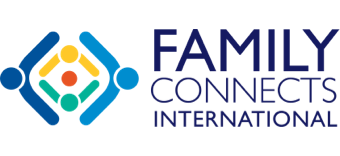Bridging gaps in Chicago’s postpartum health care coverage
A city program provides free, at-home medical visits to new parents.
After Kristen Nuyen gave birth to her son in September, she received a free, at-home medical visit through Family Connects, a Chicago Department of Public Health program that partners with participating hospitals around the city. Nuyen expected the standard, postpartum visit to take half an hour. Instead, the nurse spent more than three hours in her home—but not due to any emergency or medical issue.
“Instead of me being on the exam table, we were sitting on my couch, so it was very conversational, and I had the baby with me,” Nuyen tells the Reader. “It felt more relaxed, like I was talking to a friend—a friend who just happens to know everything.”
Nuyen’s experience stands in stark contrast with the current trend in medical visits, which, according to a 2018 study, average fewer than 20 minutes for an appointment. This extra time spent with patients is especially important for those in the postpartum period—usually lasting for six to eight weeks following childbirth—during which time the newborn and birthing parent are at the highest risk of health complications and require close monitoring.
According to a 2023 Illinois Department of Public Health report, pregnancy-related deaths in the state climbed from 88 to 110 between 2018 and 2020. The highest concentration of these deaths occurred in Chicago and the surrounding suburbs, and rates of postpartum morbidity and mortality are twice as high for Black birthing parents. The study identified the strongest predicting factors to be inadequate access to prenatal and postpartum care, and estimated that 91 percent of postpartum deaths are entirely preventable.
“Every birthing parent, [every] adoptive parent should at least have one nursing visit at home within the first three weeks,” says Janae Rhodes, nurse supervisor at the University of Chicago Medicine’s partner program with Family Connects. “There’s so many unknowns and adjustments involved during this period.”
Nuyen’s experience with her Family Connects nurse made her feel more prepared to respond to any unexpected issues that could come up. “We don’t have a lot of family in the city, and the nurse asked, ‘If there was an emergency in the city, what would you do?’” Nuyen says. “They gave me the contact information of an emergency nurse, and if something were to come up, they told me to call at any time.”
Nurses in the program are also instructed to walk parents through the postpartum warning signs—symptoms like fever, trouble breathing, dizziness, and severe headache—and encourage patients to schedule follow-up appointments with their doctor.
For Nuyen, her experience with Family Connects began long before she was pregnant. She’s worked at EverThrive Illinois—a reproductive justice nonprofit that works closely as a partner organization with Family Connects—for more than eight years. There, Nuyen leads two community alignment boards, or community-based organizations, in Chicago’s south side, which work in tandem with Family Connects nurses to ensure clients are covered regardless of their needs.
Although Family Connects currently provides one at-home visit, nurses work with families to create a plan for continued care through doctors and other medical support. “They will sit with the person while they call the doctor’s office to schedule your postpartum check up,” Nuyen says. “We can see from the data that 95 percent of people who participate in the program will go on to have their visit, which is much higher than what we see generally.”
The program uses a referral system to act as a liaison for parents, providing families with information and connecting them to medical support and material resources like diapers, which are not covered by food assistance programs like WIC in Illinois.
After working in the maternal and child health field for years, Nuyen was surprised when the Family Connects nurse informed her of resources that she didn’t realize were available. “They had a lactation consultant who was on demand and available, and I called that consultant like once a week for months after that visit,” Nuyen said.
Clients can also use the program to access other types of support, ranging from affordable housing referrals to guidance navigating resources for mental health, transportation assistance, and childcare.
“You would think some of these things are easy to find within the community,” Rhodes says. “But a lot of these resources aren’t easy to find—even through Google.”
Family Connects is also available for parents who suffer from perinatal loss and seeks to address the needs of families using a holistic approach.
“Sometimes it’s about consoling and supporting what they might be experiencing emotionally,” Rhodes says.



